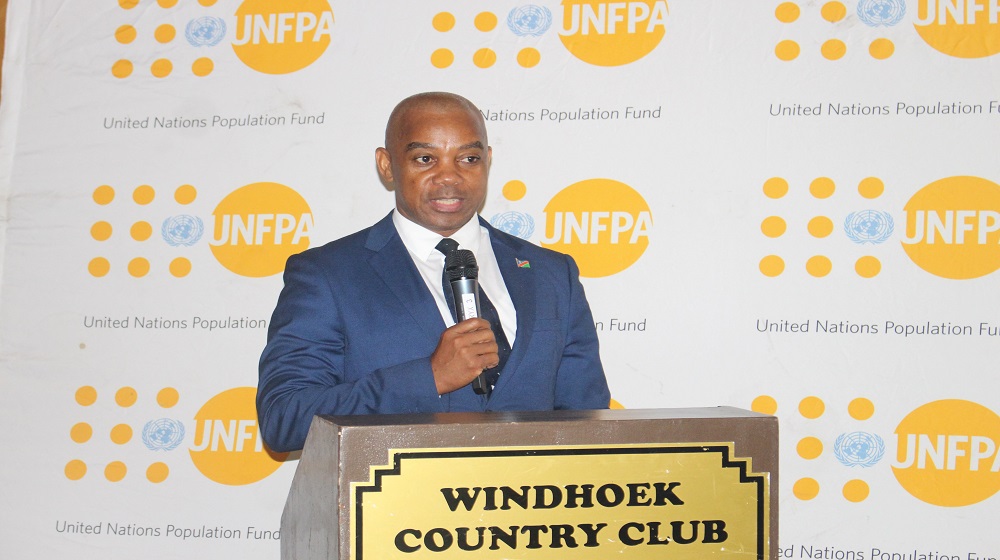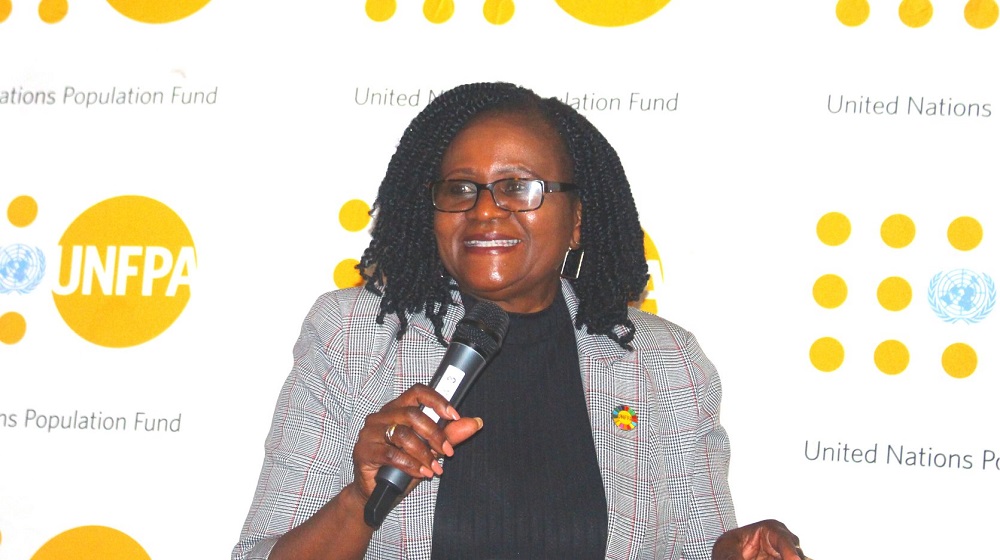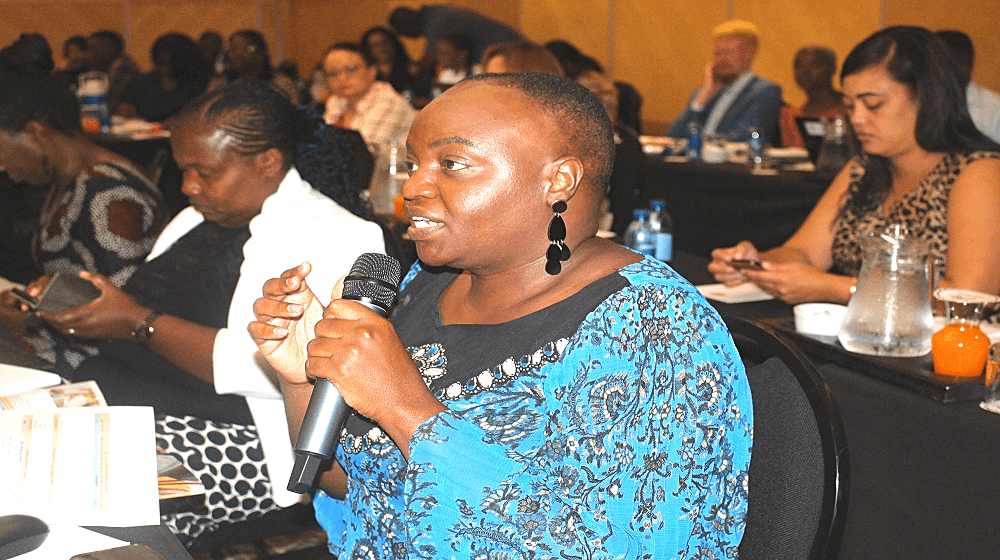WINDHOEK, Namibia − The National Planning Commission (NPC) together with the United Nations Population Fund (UNFPA) Namibia Country Office and partners have completed the joint Annual Review for the fourth year of the UNFPA/Government Sixth Country Programme (2019-2023).


The Country Programme is the framework under which UNFPA supports Namibia. Organised under the leadership of NPC, the meeting took place from 6 to 7 February 2023, in Windhoek and was attended by over 50 participants from government ministries, implementing partners, civil society organisations, sister UN agencies, and UN Resident Coordinator Office, including NPC's Deputy Chief National Development Advisor, Mr. Ned Sibeya. The partners assessed the implementation of joint work plans and the key results achieved during 2022 and agreed on priorities for focus in 2023.
The 6th Country Programme focuses on two outcomes of the UNFPA global Strategic Plan 2018-2021, Adolescents and Youth and Gender Equality and Women’s Empowerment. In this regard, the Country Programme seeks to contribute to national efforts to harness the demographic dividend through investments in sexual and reproductive health (SRH), the elimination of gender-based violence (GBV) and harmful practices that hinder the potential of youth and adolescents.
The duration of the 6th CP was challenging because of COVID-19, but we did our best to deliver on our commitments.
Addressing the meeting, Mr. Sibeya said despite the challenges and complexities of the COVID-19 pandemic, the government, UNFPA and partners managed to deliver lifesaving assistance to vulnerable women, adolescents, and youth. “The duration of the 6th CP was challenging because of COVID-19, but we did our best to deliver on our commitments. Despite the achievements, we need to do more. We now know better, and we can plan for other eventualities that may come.”
While acknowledging the positive milestones achieved in 2022, participants at the meeting agreed on the need for more innovative and integrated approaches to reach more women, adolescents and young people than ever before, especially those furthest behind.
This year’s annual review and planning meeting will be critical, as it provides key opportunities to explore innovative and ambitious strategies that will set the tone for more effective programme delivery.
“This year’s annual review and planning meeting will be critical, as it provides key opportunities to explore innovative and ambitious strategies that will set the tone for more effective programme delivery. This is especially important, given that globally and in-country, we continue to operate within a resource-constrained environment,” said Ms. Gift Malunga, UNFPA Namibia Representative ad interim. “We, therefore, need to explore sustainable strategies that will enable us to achieve more results with fewer resources,” she stressed.
Ms. Malunga also urged partners to support the Population and Housing Census being undertaken this year by the Namibian Government. “We are pleased that the Government has committed to conducting the Population and Housing Census and pledged resources. UNFPA, as the lead UN agency in population statistics and data, will contribute in terms of technical and financial support.”
Adolescent and youth-friendly health services
Among the more pronounced achievements in the areas of adolescent and youth-friendly health services, to ensure continuity of the essential sexual and reproductive health services during the pandemic, static and mobile outreaches were conducted, reaching 28 588 young people across nine regions of the country. Additionally, a total of 4 090 youth were reached through ‘The Condomise’ campaigns and 89 543 male condoms were also distributed during the campaigns.
Namibia lacks data and information on unsafe abortions and unintended pregnancies. To address this data gap, the Ministry of Health and Social Services was supported to conduct a strategic assessment on unintended pregnancy, contraception, and abortion. The results of the assessment will be used to further advocate for and address identified gaps in unintended pregnancy, contraception and abortion. It will also inform the legal reform process of the Abortion and Sterilisation Act of 1975.
Young people’s knowledge and skill
In 2022, the Namibian YouthConnekt Chapter was launched with more than 400 young people from the 14 participating regions, and the platform was used to disseminate the Third National Youth Policy. YouthConnekt seeks to empower young people by enhancing their knowledge, experiences, and skills while investing in their ideas, innovations, and initiatives. Online and face-to-face Comprehensive Sexuality Education (CSE) training was conducted for 300 pre-service teachers and 230 in-service teachers. Through the #BeFree programme, 12 dialogues on HIV, gender-based violence, menstrual awareness, positive life skills, substance abuse, SHR, masculinity and gender equality were conducted reaching 38 487 young people.
Gender-based violence
As part of promoting the provision of integrated and comprehensive services, 1 063 service providers (health, police, social workers, shelter managers, volunteers, uniform officers, constituency councilors, diamond sector employees, and Life Skills teachers) were equipped with knowledge, skills, and confidence to strengthen prevention, identification and management of sexual and gender-based violence (SGBV) survivors including those with disability in their respective workplaces. Over 6 878 survivors of GBV and women and girls at risk were reached with SGBV essential services, including GBV and SRH services (prevention and protection), medical, shelter, psychosocial support, legal services, dignity kits, and food parcels, during the reporting period.
Data
Several activities were conducted in 2022, including the regional dissemination of the 2021 Namibia Multidimensional Poverty Index (NMPI) report, the drafting of the National Strategy for the Development of Statistics (NSDS), and the annual vital statistics and causes of death reports.
The 6th Country Programme will be extended from 2023 to 2024 to align with the government’s Medium-Term plan and will continue to focus on the three transformative results, ending the unmet need for family planning, ending preventable maternal deaths, ending gender-based violence and harmful practices, and the regional priority on HIV.


